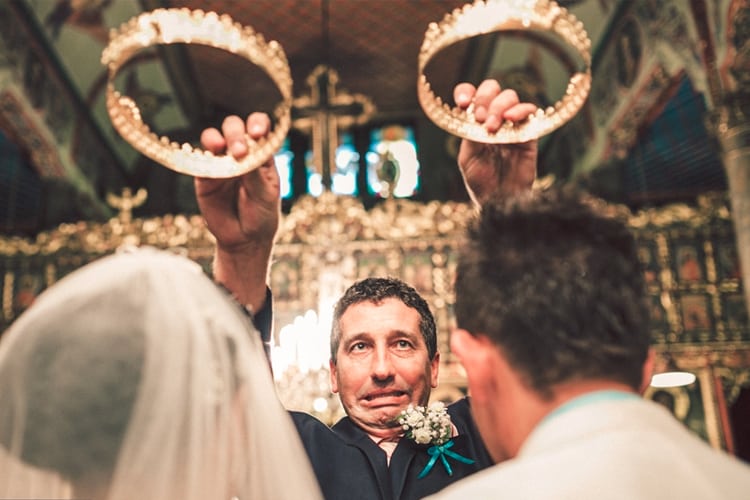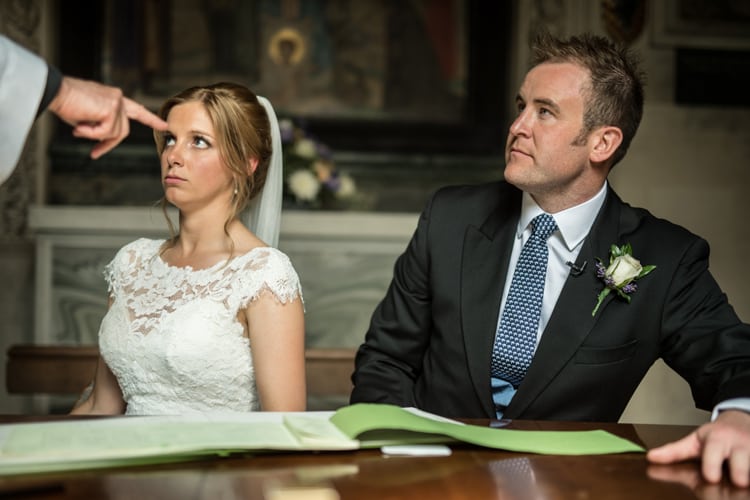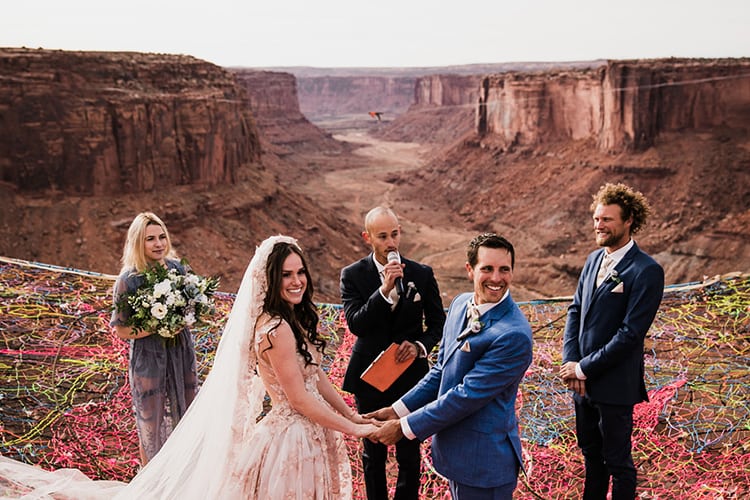
You make a lot of decisions when planning a wedding, picking things like the venue, the music, the food. One you may not have given a thought to is actually pretty crucial: your choice of officiant. This is the man or woman who will actually perform your marriage ceremony, so they are a big deal. Don’t delay, but start looking for your officiant 10-12 months before your wedding date.
This is not as simple as it sounds.
* Your families will probably want to have their say, and that can lead to conflict (Maybe you and your wife want an Aztec priest to officiate, while your parents — so predictable, so boring — want a Presbyterian minister.)
* There are questions of scheduling (your rabbi is going kite surfing on the day of your wedding).
* Your venue might come with an officiant attached, and if they aren’t what you’re looking for, you’ll have to negotiate.
Whatever the obstacles may be, here are some guidelines to help you choose the right officiant for you.
Start On The Same Page
Before you even begin to look for an officiant, you and your bride should sit down and figure out what type of ceremony you want: traditional or modern; religious or secular; quick or extended. Do you want a man with a beard and a dark frock who swings incense while he intones your vows in Aramaic? Does your fiancée wants someone who can rap the entire ceremony, in the style of golden age Philly-based MC Schooly D? You’ll need to find a middle ground.
Check Yelp
On Amazon, you can read customer reviews before buying a lawn mower. You can apply the same pre-screening here. Though it may seem weird to look for your officiant on the same site you use to decide where to go for dinner, Yelp does have a ton of local officiant listings with reviews.
Thumbtack is another good resource, and will put you in direct contact with possible candidates, based on the criteria you’ve entered. Read the comments and reviews of officiants who have professional listings, and take a peek at their social media pages to make sure there’s nothing weird going on. Any professional will have a website, or will at least be able to show you videos from ceremonies they’ve taken part in.
Decide If God Is Invited
If you decide to go with traditional clergy—whether it’s a rabbi, priest, imam or Tibetan Buddhist lama—you have to respect the way that this individual’s religious convictions will impact your ceremony. There’s no point in asking a Catholic priest to marry you, then banning any mention of the Father, the Son or the Holy Ghost.
Keep It Legal
If you decide to take an alternative route, you can obtain the sacrament of marriage from a wide variety of people, be it a ship’s captain or a shamen. But from a purely legal perspective, there are certain requirements that must be met — though they differ from state to state.
You can also have one of your friends or a family member conduct the ceremony—just make sure they get the necessary documentation to make the marriage legal in your state. If that isn’t practical, you can avoid the problem by getting legally hitched at the courthouse or county clerk’s office at some point before (or even after) the wedding.
Remember that states like Connecticut, Virginia, and Nevada don’t allow online ministers to perform weddings. Which means, ironically, that a Vegas wedding, complete with dueling Elvis-impersonators, still has to meet the legal standard. In some cases, the rules differ not only by state, but by county. So do your research carefully.
Find Your Comfort Zone
Maybe nothing matters more when looking for your officiant than finding someone both you and your fiancée like. You need to feel comfortable with this person, and be able to relax in their presence as you exchange your vows.
If you don’t know your officiant, make sure you interview them in person beforehand. Don’t make the rehearsal the first time you meet them. Everything about this person—even small details like their appearance, and the sound of their voice—matters. Go with your gut here. If something rubs you the wrong way, whether it’s the size of their ears or the way they pronounce your first name, find someone else. You don’t want to have that little irritating trait ruin your big day.
Get It In Writing
You will have a lot on your mind and it’s hard to keep track of every detail, so the best way to make sure you are on the same page with your officiant is to write down your agreement, as well as an outline of the ceremony. That way there will be no surprises on your wedding day. This doesn’t have to be a legally binding contract; it could just a follow-up email with bullet points summarizing your understanding. Seeing it in writing will also help you have a clearer grasp of how the ceremony will unfold.
Maintain Final Approval
You’re the boss and you and your fiancée should have final approval over the wedding vows and whatever statement the officiant makes. Make sure to read through his or her prepared remarks ahead of time to avoid unwanted and awkward moments, or the inclusion of ideas you may not want to be part of your ceremony. If the officiant is a professional, this shouldn’t be a problem. If it’s a friend or family member, you may have to employ a little more tact. But don’t shy away from that: if your friend is a reverend for this occasion, you’re the pope.
—Dimitri Ehrlich
When it comes to wedding ceremonies and officiants, it’s a brave new world, and there are more options than ever before. Make sure whoever you choose works for both you and your fiancée.















